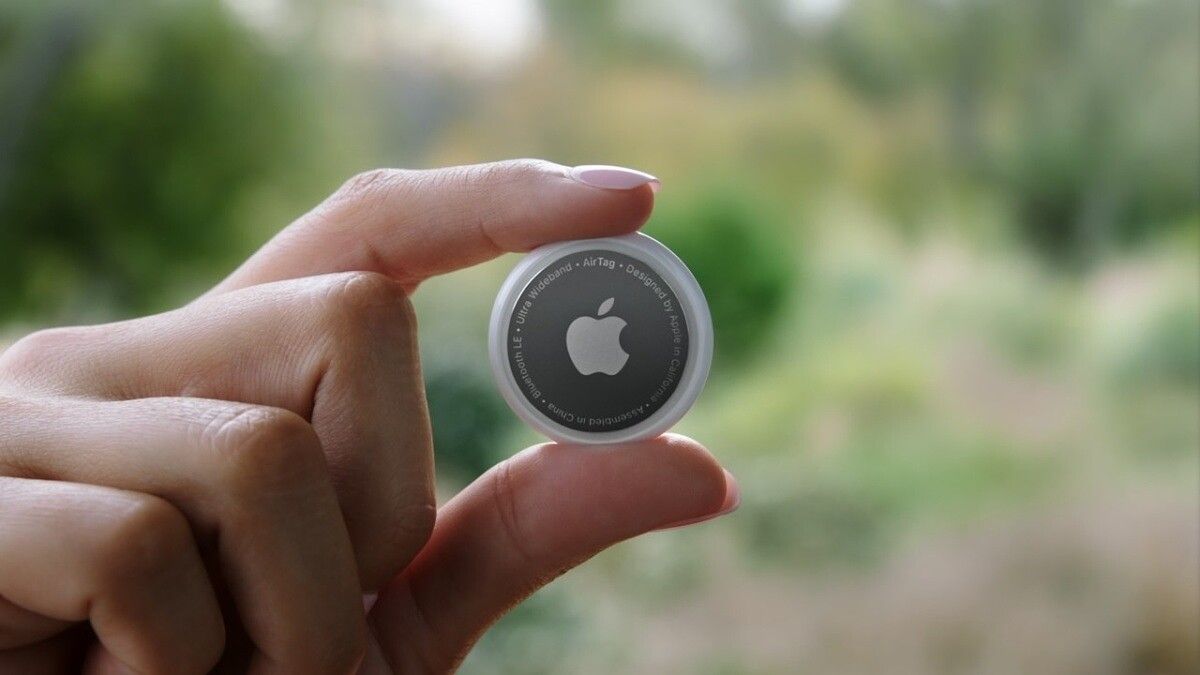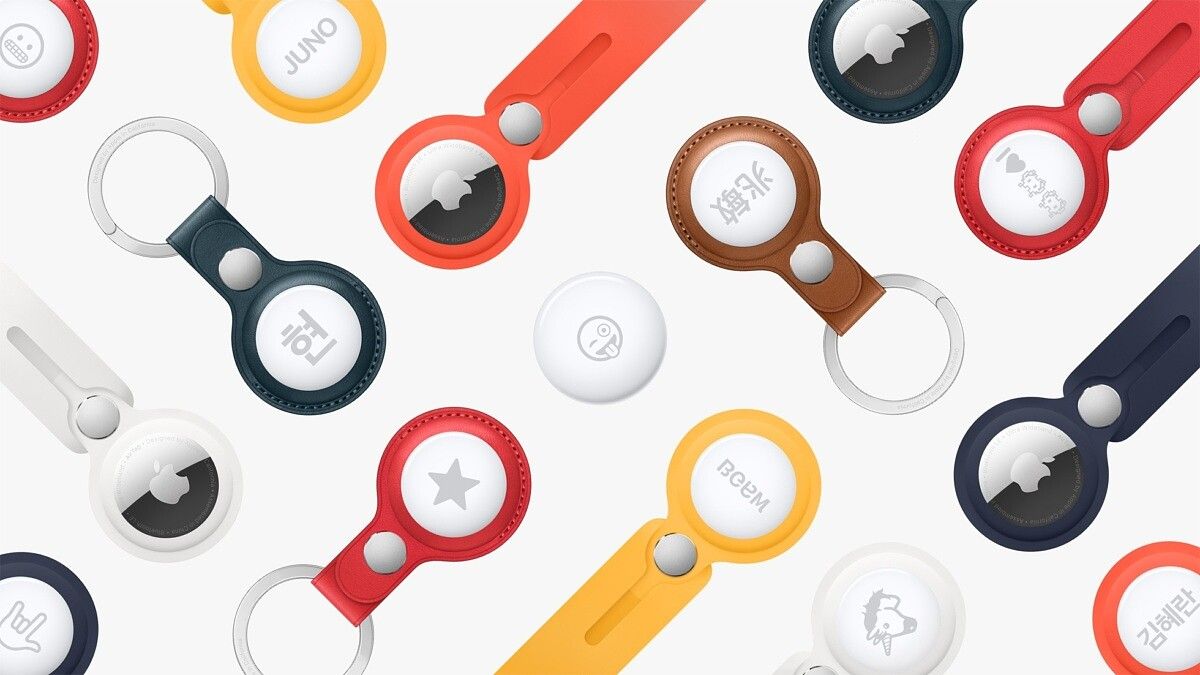After months — no, years — of rumors, Apple has finally unveiled AirTag. The location tracking puck is designed to help people find their lost devices; you can attach AirTag to everything from keys to backpacks to a camera strap. AirTag launches on April 30 for $29, or you can get a four-pack for $99.
“We’re excited to bring this incredible new capability to iPhone users with the introduction of AirTag, leveraging the vast Find My network, to help them keep track of and find the important items in their lives,” said Kaiann Drance, Apple’s vice president of Worldwide iPhone Product Marketing. “With its design, unparalleled finding experience, and built-in privacy and security features, AirTag will provide customers with another way to leverage the power of the Apple ecosystem and enhance the versatility of iPhone.”
AirTag features a lightweight, precision-etched polished stainless steel design, and is IP67 water and dust resistant. The location tracker also features a built-in speaker to play sounds, and a removable cover so users can replace the CR2032 battery. Apple said AirTag is rated for over a year’s worth of battery with everyday use.
Similar to AirPods, AirTag supports the same setup experience. Just bring the accessory close to an iPhone and it will connect. You can assign AirTag to an item and name it with a default choice like “Keys” or “Jacket,” or type in a custom name. Speaking of customization, customers can personalize AirTag with a free engraving, including text and a selection of 31 emoji when purchasing from apple.com or the Apple Store app.
As you’d expect, AirTag integrates with Apple’s Find My app and Find My network. Once an AirTag is set up, it will appear in the new items tab in the app, where you can view the item’s last known location on a map.
AirTag is equipped with a U1 chip using ultra-wideband technology, enabling a feature Apple is calling Precision Finding for iPhone 11 and iPhone 12. “As a user moves, Precision Finding fuses input from the camera, ARKit, accelerometer, and gyroscope, and then will guide them to AirTag using a combination of sound, haptics, and visual feedback,” Apple said.
Finally, Apple said AirTag keeps location data private and secure. No location data or history is stored inside the accessory, and communication with the Find My network is end-to-end encrypted. Apple said AirTag has also been designed with a set of proactive features that discourage unwanted tracking.
“Bluetooth signal identifiers transmitted by AirTag rotate frequently to prevent unwanted location tracking,” Apple said. “iOS devices can also detect an AirTag that isn’t with its owner, and notify the user if an unknown AirTag is seen to be traveling with them from place to place over time. And even if users don’t have an iOS device, an AirTag separated from its owner for an extended period of time will play a sound when moved to draw attention to it. If a user detects an unknown AirTag, they can tap it with their iPhone or NFC-capable device and instructions will guide them to disable the unknown AirTag.”
AirTag is available in one and four-packs for $29 and $99, respectively, and launches Friday, April 30.


